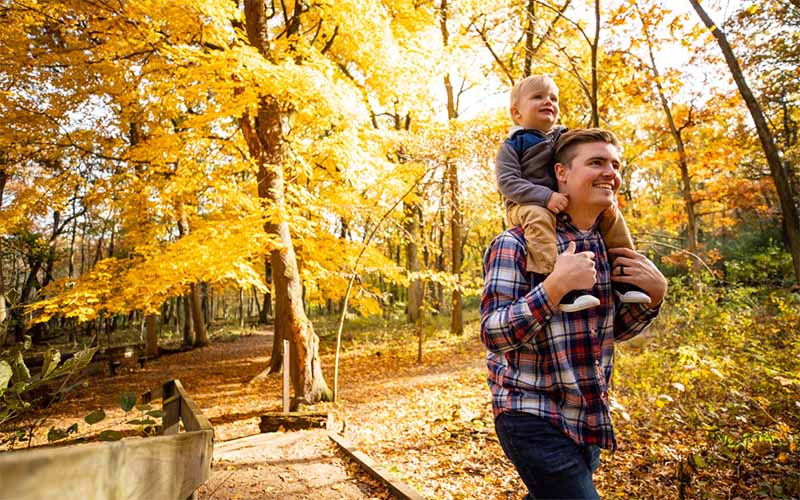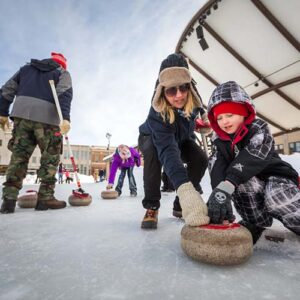Tourism is one of the largest economic drivers in Wisconsin, and outdoor recreation across all four seasons are the basis for many tourist activities. As the climate continues to warm, rising temperatures are changing and shifting the seasons for outdoor pursuits according to the most recent report from the Wisconsin Initiative on Climate Change Impacts (WICCI). The last two decades have been the warmest on record in Wisconsin, and the past decade has been the wettest.
Warming temperatures are lengthening the season for warm weather recreational activities in Wisconsin, giving the state a competitive advantage compared to places that can become uncomfortably hot during the warm seasons. Extreme heat, however, could make events held in the middle of the summer risky for vulnerable populations, particularly in urban areas.

Wisconsin’s fall color season could also lengthen in the future as the climate warms; however, extreme heat events and unpredictable precipitation levels could impact both the length and intensity of the state’s fall color touring opportunities. Wisconsin’s winter recreation season is shortening as warmer temperatures reduce snowfall, snowpack, and ice cover on lakes. Migration patterns and habitat availability are also changing for many species as the seasons shift, impacting fishing, hunting, and wildlife watching, a major driver of Wisconsin’s tourism economy.
Severe storms and rainfall are also becoming more frequent and could endanger public safety, increase event costs and maintenance, and make recreational areas inaccessible. Severe storms also contribute to more water quality issues, including more frequent and severe harmful algal blooms in lakes and beaches.
But there is hope. Planning ahead for future climate impacts will be important to ensure Wisconsin’s tour-ism industry remains strong. The WICCI Tourism and Outdoor Recreation Working Group recommends that communities diversify tourism opportunities, enhance emergency preparedness for extreme weather, enhance public safety measures, adjust recreational trails to protect access, restore wildlife habitat, and take steps to reduce the risk of harmful algal blooms. There’s hope for the future, but it’s up to us.
Tourism and Outdoor Recreation Working Group - Stories
Support WICCI
Gifts to the Wisconsin Initiative on Climate Change Impacts (WICCI) Program Fund provide general, discretionary program support and are used to enhance and expand WICCI’s teaching, research, and public service roles. Gifts are also used to support partnership-building activities, include faculty, staff, and student recruitment, retention, and morale.
The Wisconsin Initiative on Climate Change Impacts (WICCI) is a statewide collaboration of scientists and stakeholders formed as a partnership between UW–Madison’s Nelson Institute for Environmental Studies and the Wisconsin Department of Natural Resources. WICCI’s goals are to evaluate climate change impacts on Wisconsin and foster solutions.

